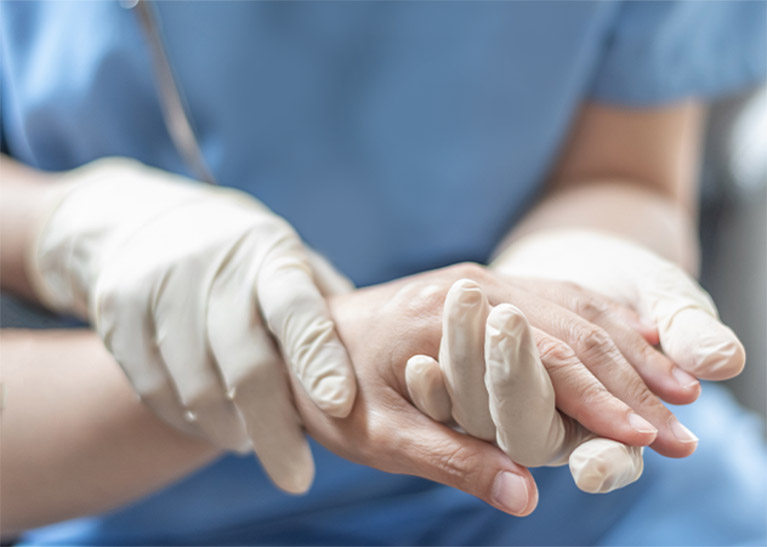What is Global Reconstructive Surgery?
 Global Reconstructive Surgery (GRS) is a fundamental component of Global Surgery and refers to the provision of care for patients with trauma, burns, wounds and congenital anomalies. The broader field of Global Surgery aims to improve health equity (access to and quality of care) for those who are affected by surgical conditions, with a particular focus on low and middle-income countries (LMICs), but also populations in crisis such as those experiencing conflict, displacement and disaster.
Global Reconstructive Surgery (GRS) is a fundamental component of Global Surgery and refers to the provision of care for patients with trauma, burns, wounds and congenital anomalies. The broader field of Global Surgery aims to improve health equity (access to and quality of care) for those who are affected by surgical conditions, with a particular focus on low and middle-income countries (LMICs), but also populations in crisis such as those experiencing conflict, displacement and disaster.
Plastic Surgeons have had a long history of involvement with GRS in LMICs and have been leaders in global surgery development. There is a global shortage of Plastic Surgeons in LMICs, yet surgical procedures requiring Plastic Surgery input make a large proportion of the worldwide surgical disease burden. The World Bank in 2015 identified reconstructive procedures for trauma and congenital anomalies to be within the 44 essential surgical procedures that are highly cost effective.
What is the future of Global Reconstructive Surgery?
There has been a shift in emphasis in recent decades away from the traditional ‘vertical model’ of flying-in surgical provision towards a ‘horizontal model’ of prioritising education, training and local capacity building. Development of the local health system facilitates the provision of sustainable multidisciplinary care, and this can be supported by multilateral partnerships between local and international teams.
 Important elements of GRS that are likely to continue to progress in the future include:
Important elements of GRS that are likely to continue to progress in the future include:
- Collaboration is beginning to flourish between GRS organisation where before they tended to operate in isolation. The pooling of resources and collective experience increases the impact of the separate organisations exponentially. Examples of effective collaborations can be demonstrated by hand surgery partnership projects between the British Foundation for International Reconstructive Surgery and Training (BFIRST) and the British Society for Surgery of the Hand (BSSH), burns collaborative endeavours between BFIRST and the British Burns Association (BBA) and the emergence of the Circle of Cleft Professionals in global comprehensive cleft care.
- Training is a cornerstone of sustainable capacity building in GRS and can take many forms including hands-on surgical courses, fellowships and educational curricula. Training opportunities have been transformed during the COVID pandemic with access to virtual educational platforms dramatically enhancing global accessibility to surgical education.
- Research is essential to identify new knowledge and to define the interventions that are most effective in LMIC settings. For the most part, GRS research has been retrospective in nature and has tended to be led by researchers hailing from high income countries. This is changing and a good example can be seen in the NIHR Global Surgery Unit, which has demonstrated the ability to set global surgery research priorities and deliver collaborative multi-national surgical trials. There is huge potential for future research in the field of surgical reconstruction taking this united collaborative approach.
- Guidance for ethically sound practice in GRS has emerged and offers individuals and organisations a structure to help ensure that interventions and actions are effective and morally justifiable. BFIRST and BSSH have published guidance regarding the governance of overseas collaborations and the Royal College of Surgeons of England have published guidance on the ethical principles of working overseas.
The Lancet Commission on Global Surgery published in 2015 was a landmark effort and served to highlight the problems, quantify the need and propel individuals and organisations into action. GRS is undoubtedly an essential element of Global Surgery and the skills of the multidisciplinary reconstructive team are very much in need. GRS has gained momentum and is progressing rapidly with an emphasis on sustainability, teaching and research. Innovation is required to help ensure equity of reconstructive care for the patients in this world who are most in need.
Resources